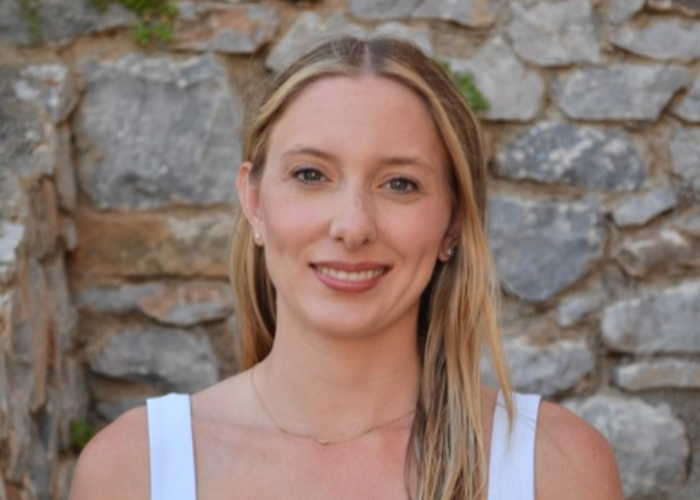
When Dr. Jennifer Ritonja joined BC Cancer in July 2025 as a scientist, she set out to advance how we detect and prevent cancer in women. A trained epidemiologist, her research focuses on identifying early indicators of cancer in women, particularly for breast and ovarian cancers.
As part of this work, Dr. Ritonja studies the epigenetic changes, or chemical changes to a person’s body that can affect how their genes function, to help predict who may be at higher risk of developing cancer. She also examines life-course factors, exploring how a women’s cancer risk can change over time. Her research has shown that physical activity during key life stages, such as early to mid-adulthood years, can significantly affect ovarian cancer risk. Her findings also show that higher activity levels during those years appear to be protective against cancer.
Dr. Ritonja is a recipient of the Cancer Research Society’s Next Generation Scientist Award, which supports her study on mammographic breast density – the strongest breast cancer risk factor aside from genetics. Collaborating with BC Cancer researchers Dr. Parveen Bhatti, Dr. Charlotte Yong-Hing and Dr. Rasika Rajapakshe, she is investigating how changes in breast density over a woman’s life may better predict her future cancer risk.
“Rather than looking at breast density at a single point in time, we’re following how it changes across a woman’s life,” says Dr. Ritonja. “The goal is to improve breast screening guidelines and strengthen cancer risk prediction.”
Dr. Ritonja’s interest in women’s cancers began during her master’s studies at Queen’s University, where she became fascinated by cancers influenced by sex hormones.
“Even though breast cancer is one of the best understood cancers, about half of cases still have no known cause,” she explains. “Ovarian cancer is even less understood and has a very low survival rate. Many risk factors, like age or genetics, can’t be changed, so finding modifiable factors is key for prevention.”
During her PhD in epidemiology at Queen’s University, she studied night shift work as a potential cause of cancer, and continues to explore how occupational and lifestyle factors influence cancer risk. She notes that while it’s harder to modify work schedules than diet or exercise, understanding these risks is vital – especially for healthcare workers and others in shift-based professions.
Dr. Ritonja completed her postdoctoral training at McGill University, St. Mary’s Research Centre, and Centre hospitalier de l'Université de Montréal, where she examined lifestyle risk factors across the life course and their links to ovarian cancer.
In addition to her role at BC Cancer, Dr. Ritonja is a member of the Women’s Health Research Institute and maintains collaborations with St. Mary’s Research Centre in Montreal.
Looking ahead, she hopes her work will contribute to improving clinical practice, screening guidelines and cancer prevention strategies.